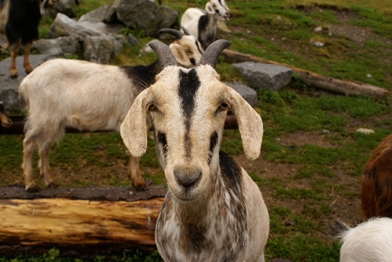A+ for Leeds University After Petting Zoo Cancelled
Compassion and common sense won out this week when Leeds University cancelled plans to host a petting zoo on campus during exam season following an urgent letter that we sent to the university’s vice chancellor laying out the facts. And our call was backed up by many compassionate students, who also voiced objections. If you were one of them, thank you!
Animals don’t enjoy being dragged around the country and manhandled by strangers, and petting zoos contribute to a cruel cycle of breeding, abandonment and killing. Exhibitors take young animals on the road and, if they survive the stress of transport and handling, typically dispose of them when they become more difficult to handle, replacing them with new animals.
Even at the “best” zoos, animals are rarely kept in normal social or family groups. Cages are usually very small and inhibit or prevent natural behaviour, including running, scavenging and selecting partners. The animals’ frustrations can lead to abnormal, neurotic and even self-destructive behaviour.
What’s more, petting zoos can have dire repercussions for humans, too. They’re hotbeds of serious pathogens, including E coli and salmonella bacteria. The area surrounding an animal’s cage can be teeming with bacteria. Those with weakened immune systems are especially at risk, making stressed-out students extra vulnerable. Coming down with a bout of salmonella just as you’re about to sit your finals is hardly likely to help you pass with flying colours – or to reduce your stress levels, for that matter.
Students with study fatigue will instead get to unwind with a bouncy castle. Jumping around releases a rush of endorphins and will be far better for the students’ health – unlike a petting zoo, which puts the health of not only animals but also humans at risk. Other institutions still considering hosting petting zoos should take note: hurting animals is no way to help students.




